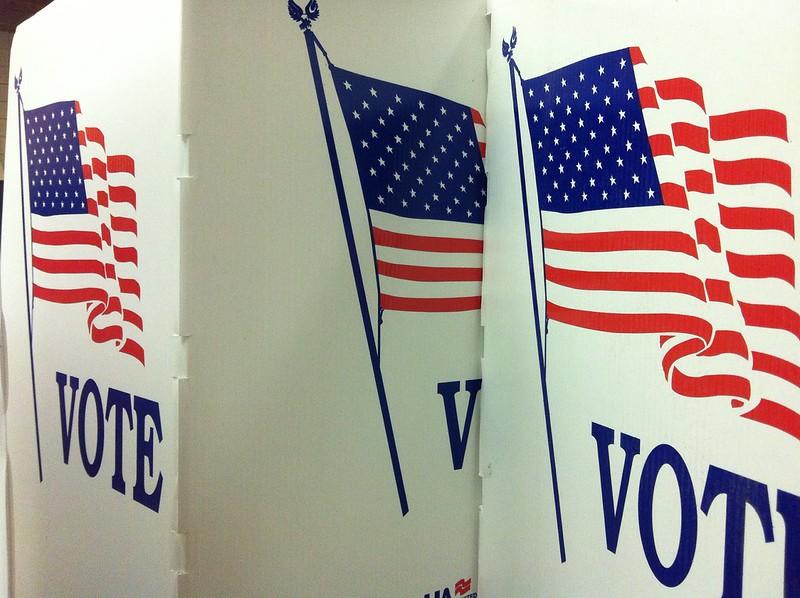With the presidential election quickly approaching, the topic of voting has come up frequently in the media and in regular conversations. However, there are a lot of people in U.S. territories who do not have the right to vote in this upcoming election, despite being citizens. Many of these people are unaware of this limitation. This issue has caused unrest in U.S. territories for many years, but it has not been rectified. The citizens of these territories deserve to have their voices heard as much as any citizen who was born in and resides on the mainland. Therefore, they should possess the right to vote in presidential elections.
Over the course of many years, the U.S. has acquired five main territories which ultimately fall under its jurisdiction. These territories include Guam, American Samoa, the Northern Mariana Islands, Puerto Rico, and the U.S. Virgin Islands. Although these territories are owned by the U.S., school curriculums on the mainland touch very lightly, or not at all, on their history. Allison Cody ‘24 stated that she “learned a tiny bit about Puerto Rico maybe in middle school or high school” however she did not “learn about any of the other territories.” The lack of lessons about these territories in curricula gives the impression that they are not so important in American history. However, this is far from the truth.
Daniel Immerwarh, writer of the book “How to Hide an Empire,” mentioned an important quote from Woodrow Wilson in an interview with Smithsonian Magazine that perfectly depicts the perspective that some Americans have on these territories. Wilson stated that those territories lie “outside the charmed circle of our own national life.” This raises the idea that the residents of these territories are merely considered citizens of the U.S. by law and not by societal standards because of their distance from the fifty states. It also isolates these territories and undermines their significance. Despite not fitting into the “circle” to which President Wilson was referring to, the U.S. has reaped and continues to reap benefits from these territories. These territories and other islands under U.S. possession, house “roughly 800 military bases around the world,” according to writer Daniel Immerwahr in his article “How the US Has Hidden Its Empire.” Territories should be seen as equal to any and every state.
The residents of these territories are legally considered citizens or “nationals.” However, they do not hold the right to vote for the president. They are allowed to vote only in their local elections and elect one representative to serve in Congress. Nevertheless, these representatives are not allowed to vote on decisions made by Congress. This limits them from affecting real change in the territories they represent. According to Geoffrey Wyatt and Neal Weare, about 4 million people reside in these territories, which is a “population that is greater than that of 21 states.” It is impossible for these people to feel satisfied with being represented by one individual per territory. Trinity Riggle ‘23, a student from the Virgin Islands, states that “territories should have the right to vote because the president of the United States is our president too, his policies affect us, and our voices deserve to be heard.” Residents of these territories serve this country by doing things such as joining the military and paying FICA taxes. If they are allowed to do these things, they should have a say in presidential elections as well.
At Loyola, many conversations are currently centered around this election, as it is a big event in American history that will shape the future of this country for the next four years. Encouraging students to exercise their voting right is necessary, but some students do feel left out of these conversations because they are from some of these territories. For example, at the beginning of the year, first-year students were encouraged to register for LoyolaVotes, however some students could not do so because they were not legally allowed to vote. Melissa de la Cruz ‘24 is one of these students. She said:
“I felt a bit uncomfortable because I didn’t know if I should tell them or not,” regarding her inability to cast a ballot.
This isolation that she felt stems from the U.S. withholding this basic right that people in these territories deserve. As a citizen of the U.S., Melissa and everyone else who was and will be born in these territories should be given the right to vote in these elections and have a say in who the leader of this country will be. They deserve the right to vote in these elections because what happens in the U.S. ultimately affects them.
Overall, residents of U.S. territories should be granted the right to vote in presidential elections. These territories have been neglected throughout history for too long and it is time to bring awareness to their existence and the unjust treatment they have undergone.
Featured Image courtesy of C x 2 via Flickr Creative Commons


















































































































